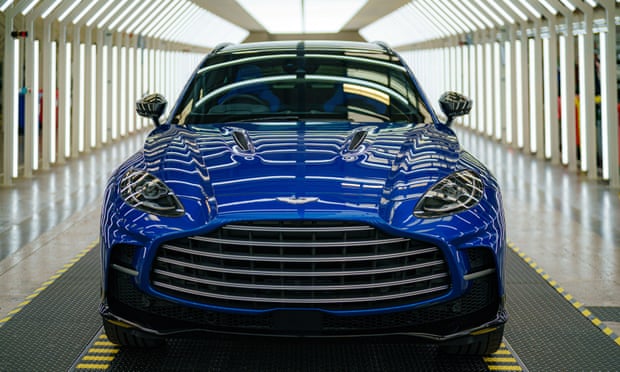Aston Martin’s pre-tax losses crash to £285.4m for the first half of 2022
Carmaker says supply chain shortages have hit production, leaving hundreds of its supercars unfinished

Aston Martin, James Bond’s carmaker, saw pre-tax losses crash to £285.4m for the first half of this year as supply chain shortages hit production, leaving hundreds of its supercars unfinished.
The company said it had difficulty meeting high levels of demand for new cars and has been hit by wider supply chain shortages, such as the global shortage of semiconductors and logistics issues.
More than 350 of Aston Martin’s latest SUV, the DBX707, were not delivered to customers as they waited for final parts at the end of June, which cost the company more than £80m.
It comes amid a tumultuous few years for the company that is best known as the maker of the flash sports cars driven by 007 in the popular Bond films.
The company said it expects its finances to improve in the second half of the year despite posting a widening deficit compared with a loss of £90.7m in the same six-month period a year earlier.
Revenue at the carmaker was £541.7m in the six months to 30 June, up 9% from the same period last year, but wholesale volumes dipped by 8% to 2,676.
The company made a disappointing stock market debut in 2018 and just two years later was bailed out by current chairman and fashion billionaire Lawrence Stroll.
In May the company appointed its third chief executive in three years after Tobias Moers stepped down and was replaced by former Ferrari boss Amedeo Felisa.
Despite its troubles, earlier this month the company announced a capital raising that will see Saudi Arabia’s Public Investment Fund overtake Mercedes-Benz AG to become its second-largest shareholder behind Stroll.
The cash injection will help to pay down the company’s debts which grew to £1.3bn at the end of June.
The brand admitted that the current cost of living crisis could dent demand for its luxury vehicles, but the supply chain issues should ease in the second part of 2022.
Stroll, Aston Martin’s executive chairman, said: “The first half of the year was not without its challenges.
“Isolated but impactful supply chain shortages, particularly in the second quarter, resulted in lower wholesales and significant working capital headwinds.
“Specifically, we ended June with more than 350 DBX707s that we had planned to deliver in the second quarter still awaiting final parts, consuming tens of millions in cash and temporarily limiting our ability to meet the strong demand we have.
“We have now started to deliver these vehicles in July and expect further improvements in the supply chain as we move through the second half of the year, supporting the delivery of our full year targets.
“As a result of the working capital build in the first half and our expected second half performance, we now expect to generate positive free cashflow in the second half, resulting in a significantly higher cash balance at year end.”